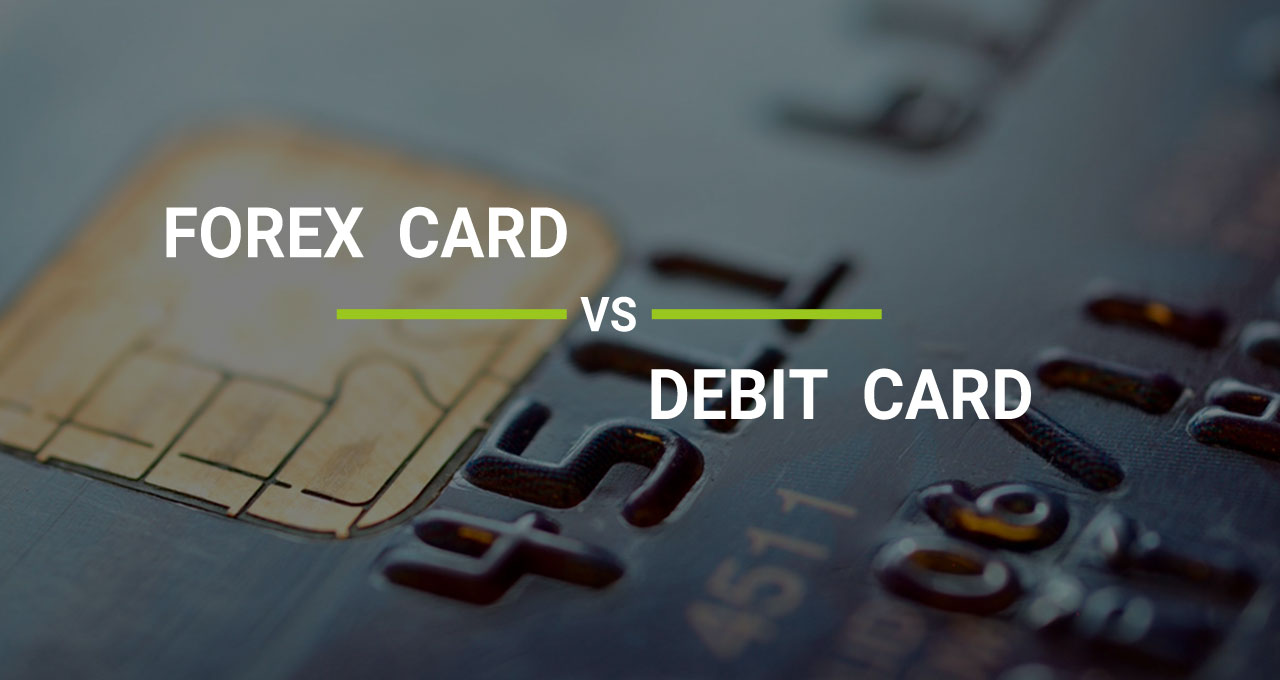Whether you’re an ardent traveler or an occasional adventurer, traversing international borders often necessitates financial dexterity. Among the essential tools for managing finances abroad, international debit cards and forex cards stand out as two widely used options. But which one suits your travel needs better? Embark on this informative journey as we delve into the advantages and shortcomings of each, empowering you to make the optimal choice for your next global escapade.

Image: simpleinterest.in
International Debit Cards: The Perks and Pitfalls
International debit cards, linked directly to your bank account, offer a swift and straightforward way of accessing funds while overseas. Their widespread acceptance at ATMs and POS terminals provides travelers with convenient access to local currency. However, certain fees and exchange rate fluctuations warrant attention.
Pros of International Debit Cards:
- Convenience: Accepted at millions of outlets and ATMs worldwide, debit cards provide a hassle-free way to pay and withdraw cash abroad.
- Direct access to funds: Linked to your bank account, debit cards allow you to tap into your funds effortlessly, eliminating the need to carry large amounts of cash.
- No upfront costs: Unlike forex cards, international debit cards typically don’t require upfront setup or issuance fees.
Cons of International Debit Cards:
- Transaction fees: Some banks may charge a foreign transaction fee for each purchase or withdrawal made outside of your home country. These fees can accumulate over time, eroding your travel funds.
- Exchange rate fluctuations: Debit cards rely on the exchange rates set by your bank or payment processor, which may not always be the most favorable. Differences in exchange rates can affect the total amount deducted from your account.
- Security concerns: Using a debit card abroad can increase your susceptibility to fraud or unauthorized transactions if proper security measures are not taken.
Forex Cards: Delving into the Benefits and Drawbacks
Forex cards, also known as travel cards, are prepaid cards specifically designed for international travel. They offer several advantages over debit cards, but they also come with their own set of drawbacks.
Pros of Forex Cards:
- Fixed exchange rates: Forex cards lock in a specific exchange rate when you load funds, protecting you from fluctuations in currency values. This can ensure predictable transaction costs.
- Specific currency loading: Forex cards allow you to load multiple currencies, enabling you to benefit from favorable exchange rates and avoid unnecessary conversions.
- Enhanced security: Forex cards often come with additional security features, such as chip-and-PIN protection, fraud alerts, and the ability to block the card in case of loss or theft.
Cons of Forex Cards:
- Loading fees: Forex cards may charge a fee for loading funds, especially for smaller amounts. These fees can add up if you make multiple transactions.
- Limited acceptance: Forex cards may not be as widely accepted as debit cards, particularly at smaller businesses or street vendors.
- Inactivity fees: Some forex card providers charge a monthly or yearly fee for keeping the card active. If you don’t use the card regularly, these fees can outweigh the benefits.
Weighing the Options: Tailoring to Your Travel Style
The choice between an international debit card and a forex card depends on your individual travel preferences and financial circumstances.
- If convenience and simplicity are your highest priorities, an international debit card may be your best option. It offers easy access to your funds and is widely accepted, though transaction fees and fluctuating exchange rates should be kept in mind.
- If you value predictable costs, currency flexibility, and enhanced security, a forex card may serve you well. Its fixed exchange rates and multiple currency capabilities provide cost control, while its security features add peace of mind.
Additionally, consider your travel destination and the duration of your trip. If you’re visiting multiple countries and plan to make frequent transactions, a forex card can help you lock in exchange rates and minimize currency conversion fees. If you’re staying in one country for a short period, an international debit card may suffice.

Image: www.kenznow.com
International Debit Card Vs Forex Card
https://youtube.com/watch?v=vS8YrQTxZZ4
Conclusion: An Informed Decision for Seamless Travel
Navigating the world of international banking can be daunting, but understanding the intricacies of international debit cards and forex cards empowers you to make an informed decision. By carefully weighing the advantages and drawbacks of each option against your travel needs, you can select the solution that ensures convenient, cost-effective, and secure access to your funds while abroad. Remember, the key to a hassle-free international experience lies in choosing the right financial tool that aligns with your financial preferences and travel itinerary.






